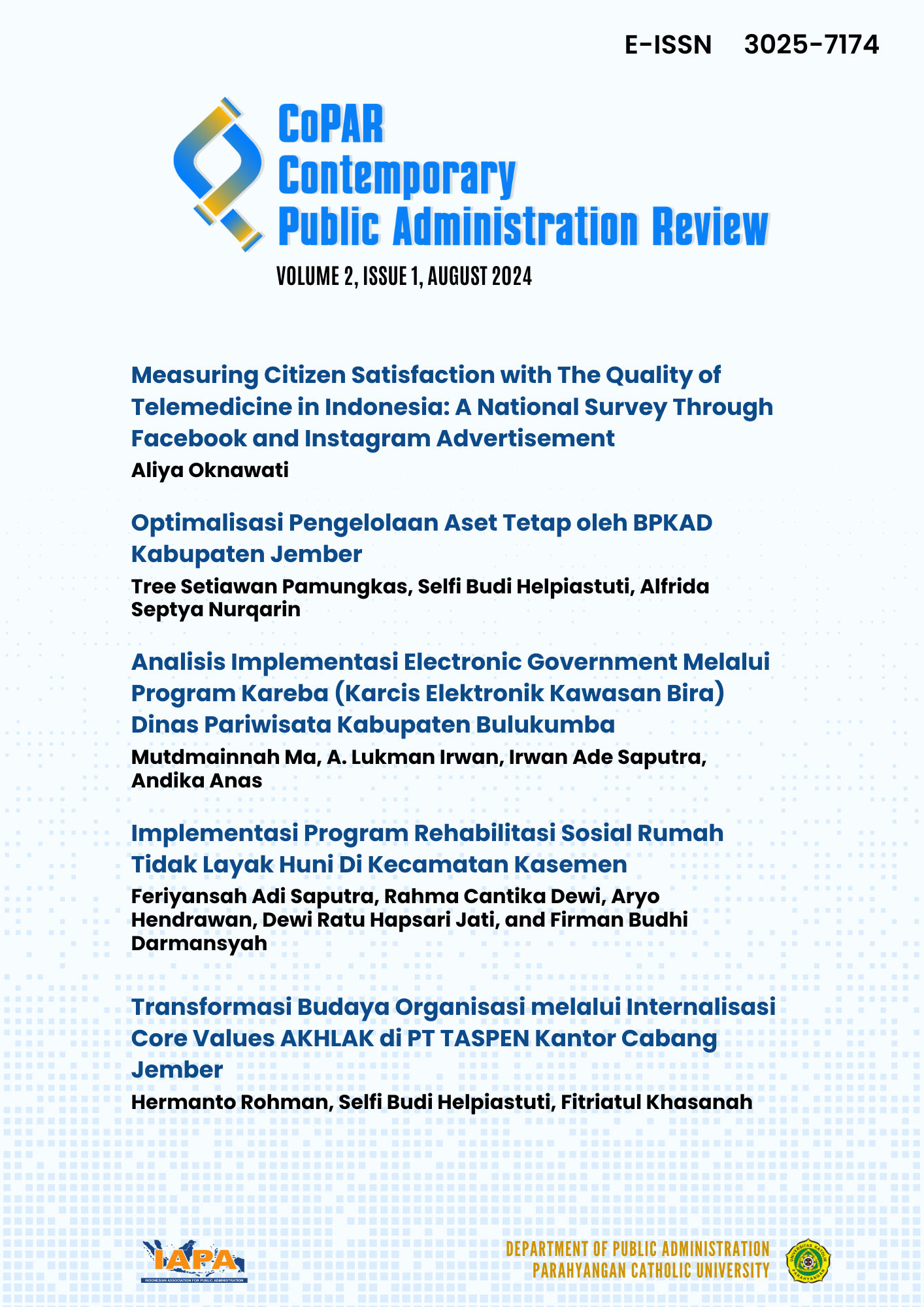Implementasi Program Rehabilitasi Sosial Rumah Tidak Layak Huni Pada Rumah Tangga Miskin Di Kecamatan Kasemen Kota Serang
DOI:
https://doi.org/10.26593/copar.v2i1.8089.47-65Keywords:
Poverty, RS-RTLH, Policy ImplementationAbstract
Poverty reflects the inability of individuals or groups to adequately meet their economic needs. One of the consequences of poverty is uninhabitable housing. To address this issue, the Serang City Government initiated the Uninhabitable Housing Social Rehabilitation (RS-RTLH) program. This study aims to evaluate the implementation of the RS-RTLH program in Kasemen District, Serang City. This study used a qualitative research method through interviews, observations, documentation, and various literature studies for data collection. The results of the study indicate that although the Government Agency for Social Affairs (Dinsos) and the Government Agency for Public Housing and Settlement Area (DPRKP) have committed to working together, there are shortcomings in communication regarding the distribution of program funds. However, the implementation of this program in Serang City has been successful, with the rehabilitation of 1,241 houses between 2021 and 2023. Based on this analysis, it is recommended that the Dinsos and DPRKP accelerate the process of submitting assistance, improve communication between agencies, and involve the community in purchasing building materials. In addition, it is important to encourage residents living in uninhabitable houses to utilize the flat facilities provided by the government to improve their quality of life. By conducting a careful evaluation of the implementation of the RS-RTLH program, the Serang City Government can improve the effectiveness and efficiency of the program and ensure that the assistance provided has a significant impact on the community in need.
Downloads
Published
How to Cite
Issue
Section
License
Copyright (c) 2024 Contemporary Public Administration Review

This work is licensed under a Creative Commons Attribution 4.0 International License.





